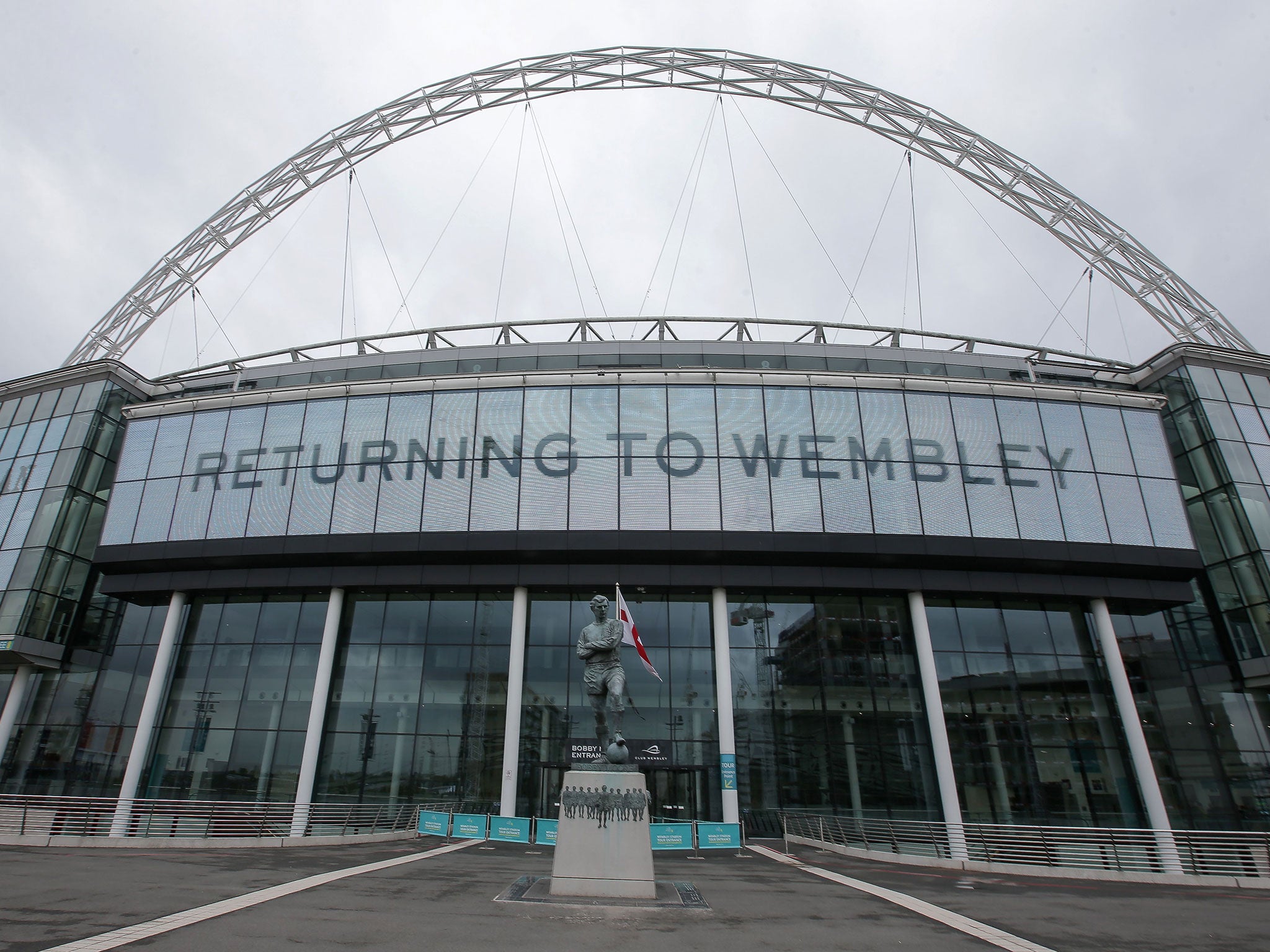Wembley sale collapse a ‘huge disappointment’ for the English game, say grassroots bodies
Fulham owner Shahid Khan retracted his offer when it emerged that it would fall short of a clear FA Council majority

Your support helps us to tell the story
From reproductive rights to climate change to Big Tech, The Independent is on the ground when the story is developing. Whether it's investigating the financials of Elon Musk's pro-Trump PAC or producing our latest documentary, 'The A Word', which shines a light on the American women fighting for reproductive rights, we know how important it is to parse out the facts from the messaging.
At such a critical moment in US history, we need reporters on the ground. Your donation allows us to keep sending journalists to speak to both sides of the story.
The Independent is trusted by Americans across the entire political spectrum. And unlike many other quality news outlets, we choose not to lock Americans out of our reporting and analysis with paywalls. We believe quality journalism should be available to everyone, paid for by those who can afford it.
Your support makes all the difference.Shahid Khan's decision to withdraw his offer to buy Wembley has been described as a "huge disappointment" and a missed opportunity by two of the biggest sponsors of grassroots facilities.
The Fulham owner had offered the Football Association £600 million in cash for the stadium, as well as letting it keep the Club Wembley hospitality business, worth another £300m.
FA chairman Greg Clarke and chief executive Martin Glenn were both strongly in favour of the deal and wanted to use the money to fix England's dilapidated changing rooms, water-logged pitches and stretched 3G facilities.
They hoped Khan's £600m could be the catalyst for a total investment in community facilities over the next 20 years of £3.3bn, more than double what the Football Foundation and Sport England have been able to do since 2000.
But in separate statements, Glenn admitted the proposed sale had been "more divisive than anticipated", while Khan said it had become clear "there is no definitive mandate to sell Wembley and my current proposal, subsequently, would earn the backing of only a slim majority of the FA Council, well short of the conclusive margin the FA chairman has required".
Such an outcome has been on the cards ever since last week's council meeting proved just how split football was on the idea, with some seeing it as a gilt-edged opportunity to solve one of football's most expensive problems, while others likened it to selling the family silver and questioned the FA's ability to invest the windfall wisely.
The UK's largest sports charity, the Football Foundation, would have been the vehicle the FA used to pick, manage and fund the projects, as it currently does with the funding it receives from the FA, Premier League and government.

In a statement, it said: "News that Mr Khan has decided to withdraw his offer to buy Wembley should come as a huge disappointment to community footballers everywhere.
"Football participation in this country is huge. Unfortunately, those who play the game, simply for the love of doing so and for the health benefits are having to put up with a stock of community football facilities that is in a shameful state.
"This would have been a once-in-a-lifetime opportunity to make considerable inroads into probably the most pressing issue facing football in this country."
Nick Bitel, the chair of Sport England, the government agency that funds grassroots sport, was more measured but his disappointment was equally plain.
"We agree with the view that the Wembley Stadium offer was a huge opportunity to boost funding into the development and maintenance of artificial and grass pitches up and down the country," he said.
"Now that this deal is off the table, we hope the football family will now consider other ways the much-needed additional funds for grassroots facilities can be generated."
Sports minister Tracey Crouch told the BBC she was "very disappointed" but a spokesperson for the Department of Digital, Culture, Media and Sport said it was always "a matter for the FA" and any deal "would have had to further benefit the grassroots game in this country", while the stadium remained the home of English football.
Join our commenting forum
Join thought-provoking conversations, follow other Independent readers and see their replies
Comments